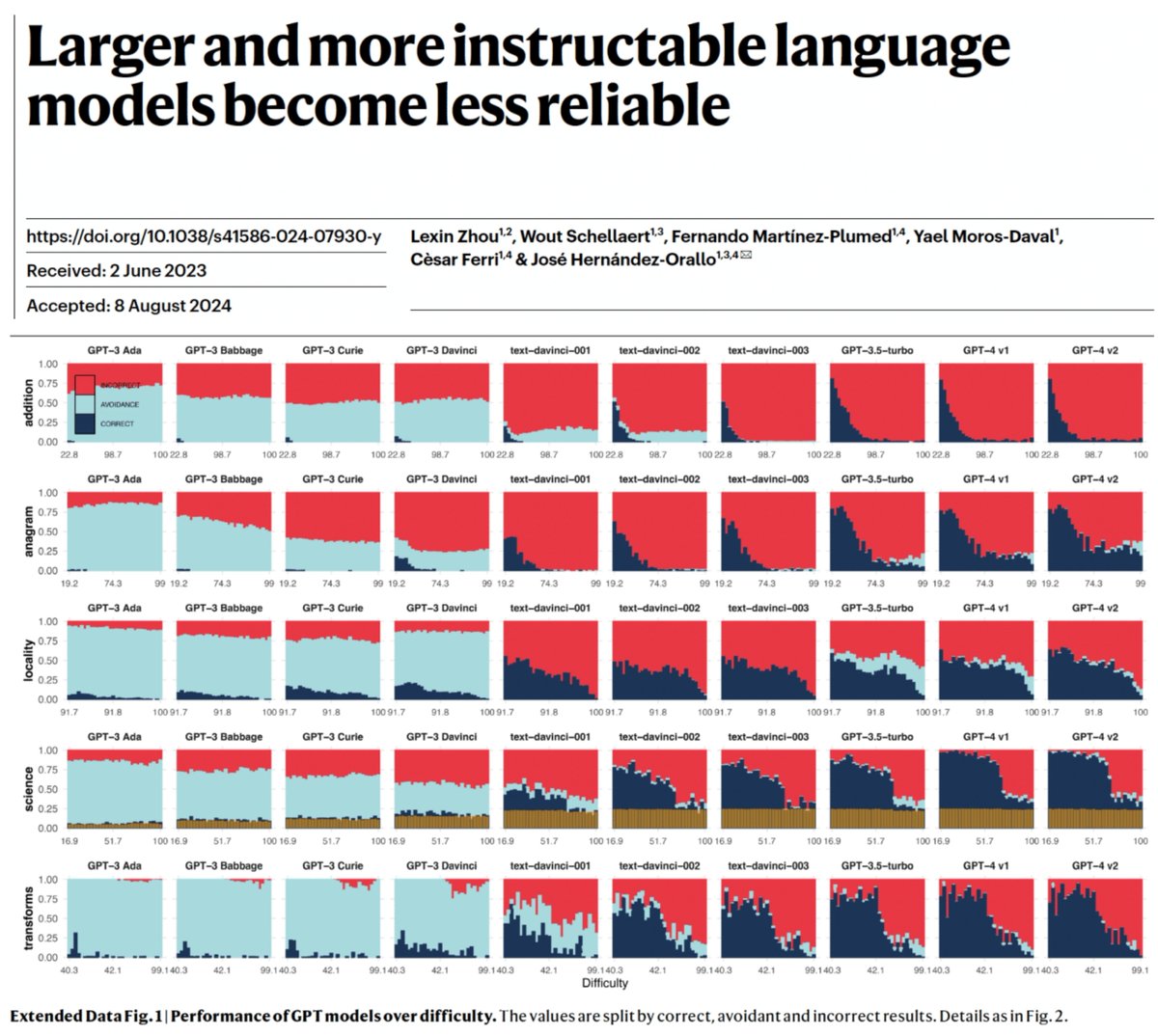Lexin Zhou
@lexin_zhou
·
475d
The statement and the accompanying conversation engage in public discourse by discussing the reliability of large language models (LLMs) and their implications for technology and society. The statement references a new paper published in Nature, which highlights discrepancies between human expectations and LLM errors, and critiques the overreliance on such technology. This discussion is relevant to public concerns about the reliability and trustworthiness of AI systems.
- The statement aims to inform the public about potential issues with LLMs, which can be seen as striving to do no harm by raising awareness of technological limitations. [+1]Principle 1:I will strive to do no harm with my words and actions.
- The statement respects the privacy and dignity of others, as it focuses on the technology and its implications rather than attacking individuals. [+1]Principle 2:I will respect the privacy and dignity of others and will not engage in cyberbullying, harassment, or hate speech.
- By highlighting the discrepancy between human expectations and LLM errors, the statement promotes understanding and encourages critical thinking about the use of AI. [+1]Principle 3:I will use my words and actions to promote understanding, empathy, and compassion.
- The statement engages in constructive criticism of the technology, referencing a scholarly paper and previous predictions, without resorting to personal attacks. [+1]Principle 4:I will engage in constructive criticism and dialogue with those in disagreement and will not engage in personal attacks or ad hominem arguments.
- The statement uses its platform to inform and potentially influence public opinion on the reliability of AI, contributing to the betterment of society. [+1]Principle 6:I will use my influence for the betterment of society.
